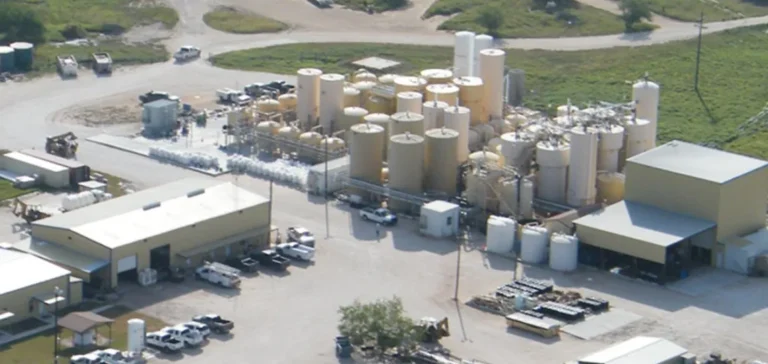enCore Energy Corp. states that it has crossed an unprecedented extraction threshold at its Alta Mesa central processing plant, thanks to the integration of automated systems and a reorganisation of its technical management. The company now reports a rate of more than three thousand pounds of uranium oxide per day. This performance comes less than a year after the commercial relaunch of the site, which uses in-situ recovery to limit surface operations. Executives believe this momentum supports the industrial roadmap aimed at increasing the plant’s nominal capacity.
Continuous increase in mining throughput
In a release issued by PRNewswire on June 26, the company listed on Nasdaq (EU) and the Toronto Venture Exchange (EU) noted that during the seven days ended June 23 the plant captured more than 3 000 lb each day, with a peak of 3 705 lb on June 20. The first twenty-two days of June delivered 53 022 lb, an average of 2 410 lb per day. In May, the rate stood at 2 103 lb, compared with 1 942 lb in April. Management attributes these gains to denser well spacing and streamlined resin circuits.
The expansion programme mobilises twenty-four drilling rigs deployed across several South Texas sites to open a new field every four to five weeks. Thirteen production wells and fifteen injection wells now make up Field 7, while separate teams prepare the extension of Field 3 and the rehabilitation of Field 6. Four rigs are operating at the Upper Spring Creek project, which is to supply satellite feed to the Rosita plant from 2026. Alta Mesa, operated through a joint venture in which enCore holds seventy per cent alongside Boss Energy Limited, remains licensed for an annual capacity of 1.5 mn lb.
Texas nuclear reforms
The Texas Legislature has passed three bills simplifying the authorisation process for production areas and disposal wells, measures that Executive Chairman William M. Sheriff sees as a strategic lever for in-situ operations. He also welcomed Governor Greg Abbott’s signature of the bills, arguing that they will strengthen the state’s position in the civil nuclear sector. Before these reforms, Texas was already known for reduced permitting times for uranium extraction. The additional relief could, according to the company, support future satellite well deployments and the ramp-up of regional production.
The next technical step will be to bring the plant’s throughput to the contractual threshold, while drilling at Upper Spring Creek continues to supply Rosita. Finance officers report that the current cost structure remains consistent with long-term sales contracts concluded last year. Analysts will closely watch the impact of the new rules on commissioning schedules, since any reduction in lead time can alter cash-flow projections. The company must still demonstrate that the extraction pace observed in June can be sustained beyond the ramp-up phase.






















